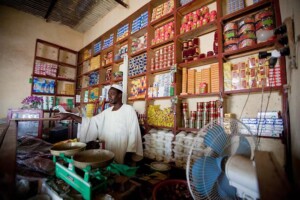Employees from Sudan’s electricity sector begin strike
Employees working in Sudan’s electricity sector announced the start of a two-day strike on Tuesday across several states after the Ministry of Energy and Oil failed to meet their demands for the implementation of the 2022 new salary structure.
The states affected by the strikes include Khartoum, Red Sea state, North Kordofan, South Kordofan and Northern State.
 Electricity workers stage protest in front of the Ministry of Energy and Oil in Khartoum, demanding better pay, September 6 (Social media)
Electricity workers stage protest in front of the Ministry of Energy and Oil in Khartoum, demanding better pay, September 6 (Social media)
Employees working in Sudan’s electricity sector announced the start of a two-day strike on Tuesday across several states after the Ministry of Energy and Oil failed to meet their demands for the implementation of the 2022 new salary structure.
The states affected by the strikes include Khartoum, Red Sea state, North Kordofan, South Kordofan and Northern State.
The unrest began on Monday after a large group of employees of the Ministry of Energy and Oil in Khartoum began a sit-in protest at the ministry, demanding the implementation of the 2022 new salary structure which includes a pay rise, before meeting with Sudan’s Energy Minister Mohamed Abdallah.
In a statement that followed the encounter, the Committee for the Electricity Workers Salary Structure said the minister eventually agreed to look at their demands and submit them to the appropriate authorities but did not guarantee their implementation.
The statement also described the minister's words and efforts as “procrastination” and “without intent” to fulfil any of their demands. “The formation of any other committee by the ministry filled by people from outside the sector will be refused,” the statement added.
According to the Independent Sudanese news outlet Al Rakoba, security forces were eventually called to the ministry’s headquarters although no violence or clashes were reported.
The safety of Sudan’s electrical appliances is also a concern for employees. A worker in Port Sudan, capital of Red Sea state, died on Sunday from an electric shock while attempting to repair a fault in an electricity main system. Sudan witnessed various protests concerning the federal authorities’ failure to implement the promised 2022 salary structure, which increases wages amidst Sudan’s rising inflation. Many workers are still paid their old salaries instead of the increased 2022 wage.
Blackouts, cooperation
Failing Electricity Sector Electricity blackouts are frequent across Sudan with many rural areas completely without any electricity supply. About half of Sudan's electricity is generated from either hydropower or from burning fuel.
In a case of frequently occurring fuel shortages, the people in the country suffer from daily hours-long power cuts.
On Sunday, the Minister of Energy met with the Egyptian ambassador to Sudan, Hossam Eisa, to discuss possible improvements in “electrical interconnection” between the two countries, and further cooperation in the development of renewable energy sources.
Connected to the power net
In a tweet on Tuesday, Mubarak Ardol, head of the Sudanese Mineral Resources Company, announced the approval of new contracts for an electricity project that will service 12 villages in eastern Sudan’s Kassala.
“Today, we signed contracts concerning the El Gash villages electricity project for 12 villages in Aroma and North Delta. These villages deserve these services and they have been waiting for this day for a long time,” he stated. “Eastern Sudan is one of the largest gold-producing areas in Sudan. They have the right to benefit from development services from the proceeds of this industry.











 and then
and then